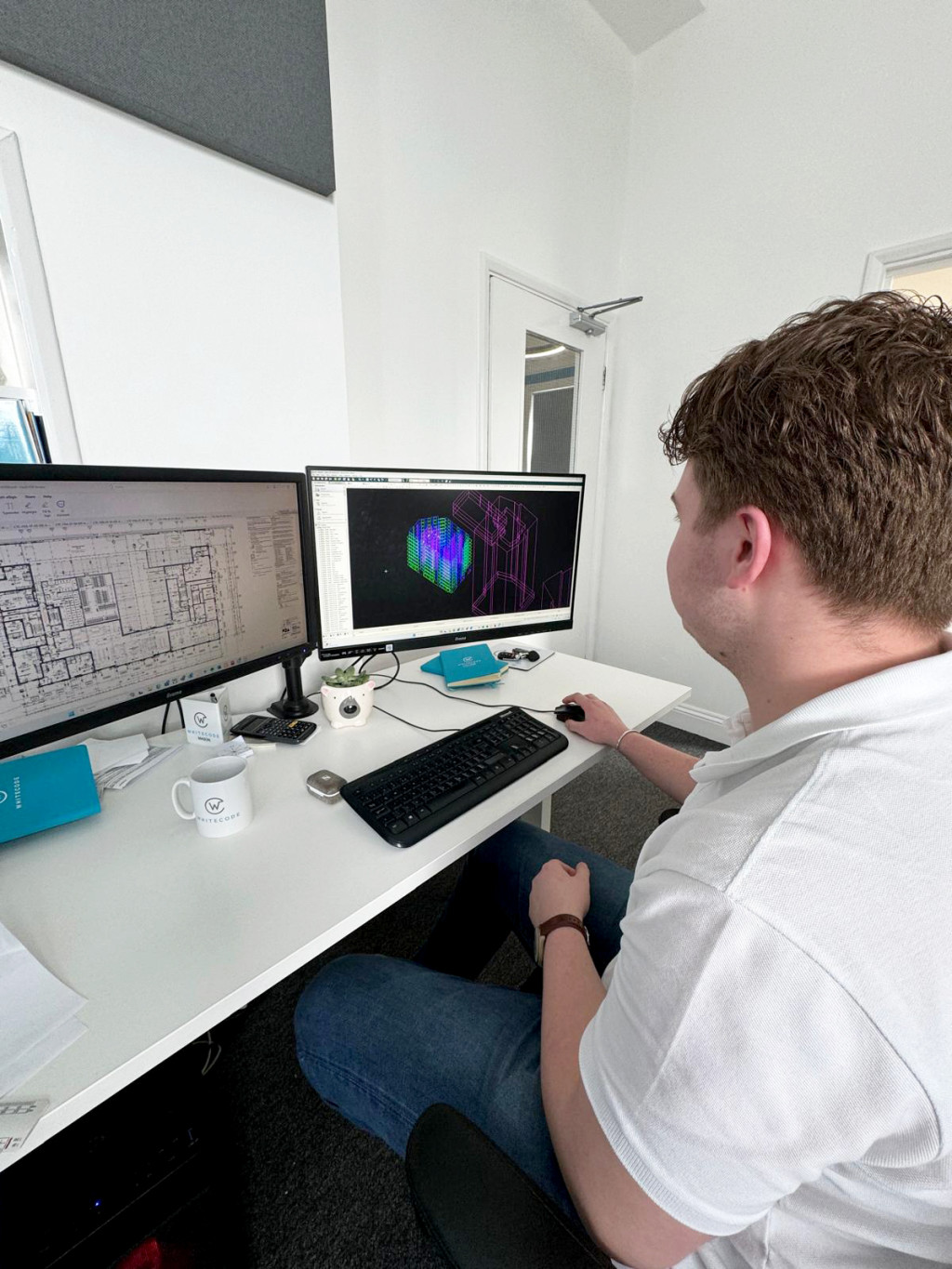Improving the global standard for smart buildings

With sustainability gaining increasing significance thanks to the government’s 2050 Net Zero target, utilising technology and expertise to improve building quality, safety and energy efficiency is now paramount. As one of just 24 accredited Wiredscore and Smartscore professionals in the UK, Whitecode Consulting’s William Auloni reveals how these two certifications can help property owners and developers build smart buildings that meet high standards of sustainability and drive cost efficiency.
The increasing demand for smarter and better built buildings means designers, architects and contractors must focus on everything from connectivity and telecommunications through to buildability, sustainability, cybersecurity and occupant wellbeing.
To that end, Wiredscore and Smartscore certifications provide clarity on what constitutes a smart building, proof of the value it adds to an asset and guidance on how to achieve the status.
This is done by assessing each building against the outcomes and benefits expected of a smart building, assessing the procedures, processes and technologies that support their implementation and scoring the user stories implemented. As a result, the building will be designed and set up to meet the expectations of occupiers and be future-ready to improve user functionality.
A holistic smart building experience
With a focus on integrating building systems and data to enhance the overall occupier experience, Smartscore empowers property developers and landlords to design and build smart buildings that promote future-ready capabilities, cost efficiency and sustainability – all while delivering an exceptional user experience.
Cutting-edge in-building technology
While Smartscore looks at user experience, Wiredscore certifications establish the benchmark for in-building technology. They do this by making sure the technological infrastructure is up-to-date and able to provide a resilient and relevant environment for modern workplaces. Typically, the focus is on resilience and connectivity.
Compliant with quality and sustainability standards
Telecommunications and connectivity remain hugely important aspects of any building structure, meaning the need for them to be managed and delivered effectively is enhanced. The Wiredscore and Smartscore certifications will ensure that building developers and designers will be provided with all the tools and data they need to do exactly that.
Being able to instantly access all important data and tools means specifiers and developers can meet the ever changing demands of occupiers and build cutting-edge smart buildings that meet the incredibly high standards of sustainability, drive cost efficiency and are future-ready.
When utilised with the ‘Golden Thread’ of information, introduced after the Grenfell Tower disaster, this means anyone responsible for the building will have easily accessible, up-to-date, accurate and reliable information. Without it, a dutyholder won’t be able to fulfil and demonstrate they are undertaking their legal duties.

Furthermore, making sure that developers, contractors and designers are provided with all the information and data they need could ensure client trust and increase the chance they are retained by the end-user in the future.
Built with decades in mind
With the focus on buildability increasingly gaining significance, ensuring that any building is future-proof, built to last and incredibly robust is imperative. Smartscore and Wiredscore certifications will assess how future-proof the building’s processes, procedures and technologies are, including examining how integrated the building’s systems are and how well they communicate with one another. As a result of this extensive evaluation of the building’s smart capabilities, the building won’t just meet today’s standards, it will also be prepared for future advancements.
Increase investor confidence
In addition to meeting building quality and sustainability standards, and attracting new occupants, focusing on Wiredscore and Smartscore certification can also help building developers and housebuilders demonstrate to investors and the wider market that the asset is being designed and built with sustainability and future building demands in mind. This essentially means that the better designed and more sustainability-focused the building, the more attractive the property and the developer will be in the future.
Help to attract and retain occupiers
With competition for residential and commercial space in major cities and towns incredibly fierce, attracting and retaining occupants is becoming increasingly important. Achieving certifications from Wiredscore and Smartscore can help to position any commercial brands or property owners as sustainability and technology-focused.
Consequently, occupants will be more likely to be attracted to the property and then equally as likely to want to stay there long-term.
With the built environment increasingly focusing on sustainability as much as safety, it is absolutely essential that architects, contractors and building owners ensure buildings are attractive to the next generation of tenants and technologically forward-thinking. Wiredscore and Smartscore helps all involved in a building project to improve, promote, understand and benchmark a building’s digital infrastructure.







